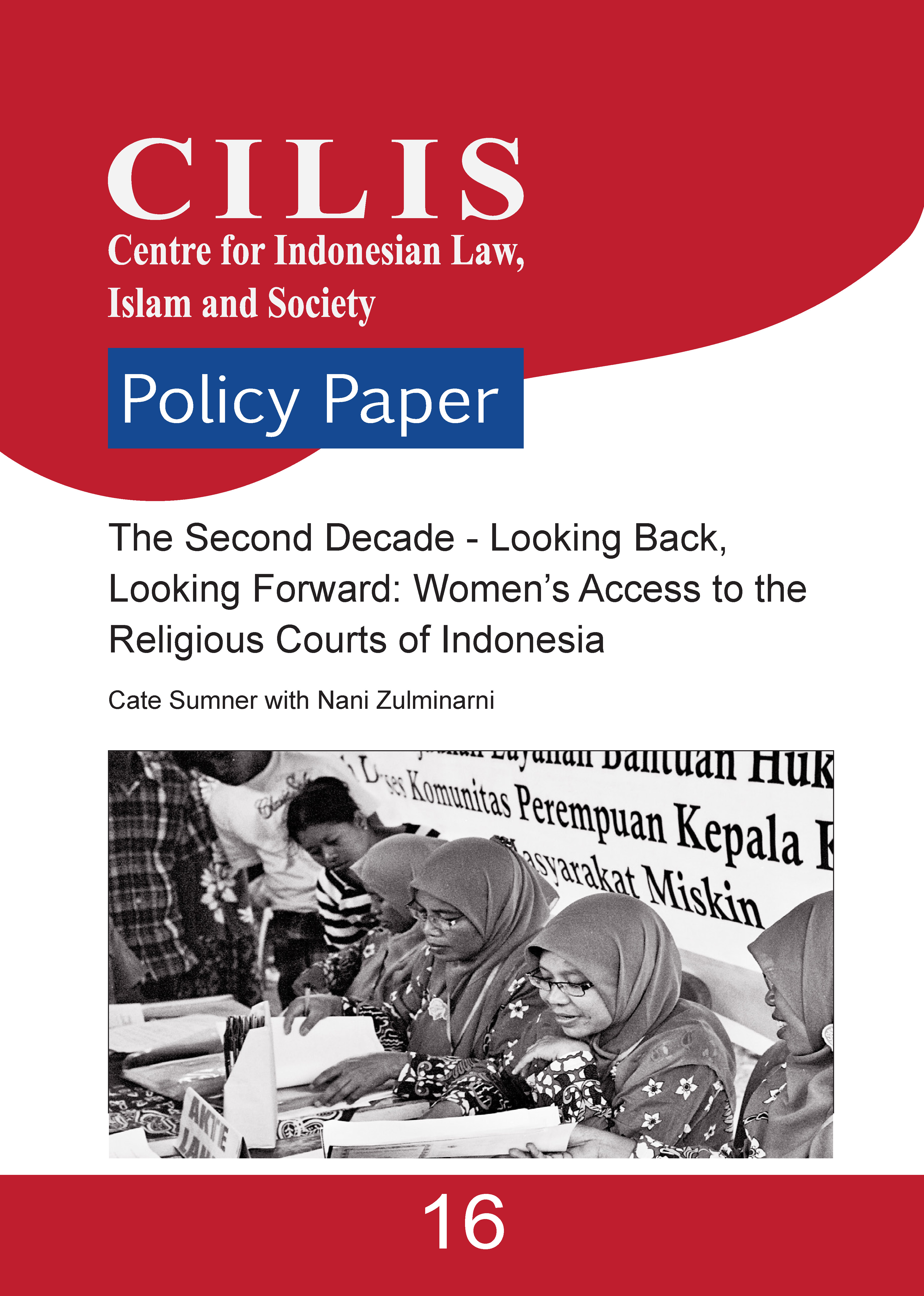No 16 (2018) by Cate Sumner with Nani Zulminarni

Reflecting on over a decade of collaboration that has contributed to more than a million more women accessing the Indonesian family courts for Muslims known as the Religious Courts, this paper considers the elements that contributed to the results and what is important for programmes that prioritise women’s access to justice and, in particular, access to the formal justice system. The authors also look forward and address changes needed in the coming decade to further accelerate improvements in women’s access to the courts and address the quality of service they receive. Six concluding reflections are offered, summing up some of the striking lessons. These: include: the importance of inclusive (and sometimes unlikely) networks or coalitions that support reform; the need for research and knowledge publications that lay an evidence base to present to national agencies that control budget resources; the value of adequate time to trial approaches, building trust to show results; and the importance of paralegals supporting women and girls to access the formal justice system. An earlier version of this paper was presented by the authors at the World Congress on Family Law and Children’s Rights in Dublin in June 2017.
For 25 years, Cate Sumner has worked in the Middle East, Asia and the Pacific, focusing on access to justice, legal identity, human rights and judicial reform. Her career spans work with the international law firm Baker & McKenzie in Cairo, the United Nations (as a Refugee Affairs Officer in the Gaza Strip and as Legal Officer in Jerusalem,) and the International Development Law Organisation in their offices in Manila and Sydney. Cate established Law & Development Partners in 2005 to bring together law and development specialists working in Asia and the Pacific. Its focus is on improving access to justice for women, people with a disability, and vulnerable children. A particular focus has been how these groups are able to access the formal justice system and civil registration systems. Cate has worked in Indonesia since 2005 as an adviser on access to justice and legal identity programmes and has contributed analytical and policy papers to a range of international organisations and policy think- tanks ranging from UN Women, the World Bank Justice for the Poor Series, the Centre for Global Development and the Lowy Institute for International Policy.
Nani Zulminarni is the founder and Director of the largest female heads of household organisation in Indonesia – PEKKA. For over 17 years, PEKKA has changed the way women heads of households are considered and the public services they can access for themselves and their children. In 2006 PEKKA developed a legal empowerment program in response to the marriage and family issues faced by the PEKKA community. Since then, PEKKA has trained over 2000 women as paralegals who, in turn, have assisted over 125,000 women and children with their legal issues. In 2014, PEKKA launched its legal aid clinics (KLIK), through which it provides legal advisory services to individuals at village level. Ibu Nani has received many awards in Indonesia and internationally. In 2014, she received the Lotus Leadership Award in the US for her commitment to improving the lives of young women in Asia.